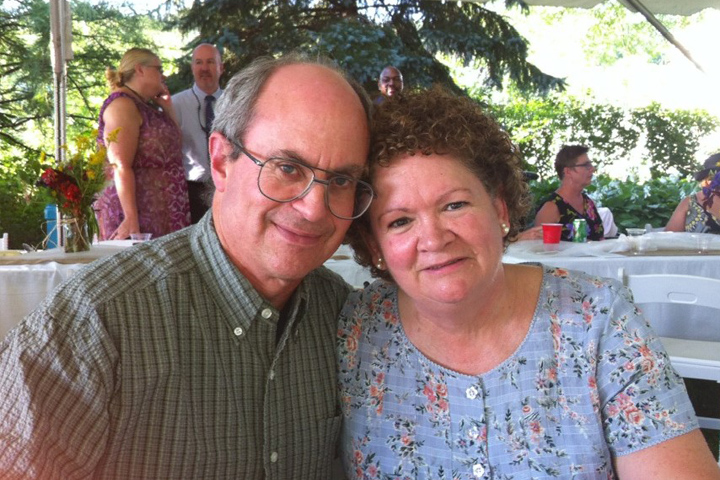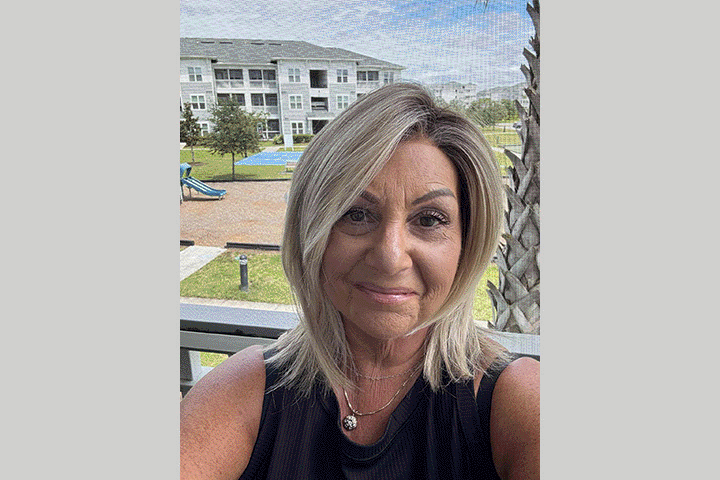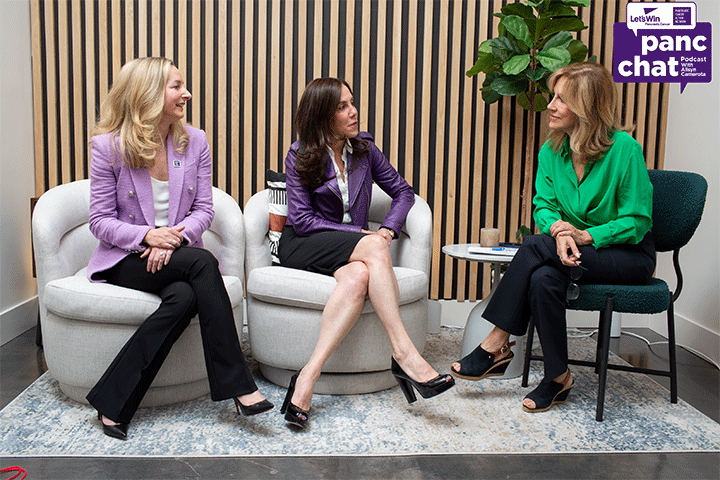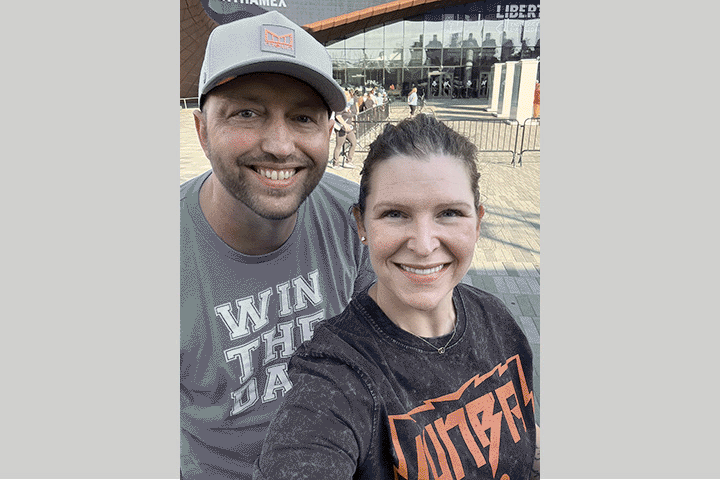Taking Nothing For Granted

- Whipple procedure followed by chemotherapy and radiation
- Molecular profiling leads to a clinical trial
- Genetic testing shows not a BRCA carrier despite a family history of cancer
- Joins an immunotherapy clinical trial
I knew something was wrong when I noticed I was losing weight in June of 2015 without explanation and I was always tired.
I struggled with being overweight for most of my life, so at first I thought the weight loss was a good thing. By early July I was feeling tired a lot but I am an active person, so I thought it might be due to being extra active. Then I noticed my bowel movements changing color. I thought I might have hepatitis, which I could have contracted while kayaking on a dirty river. By the time I saw my doctor my urine was also changing color. After I saw my doctor I realized I was looking jaundiced—prior to that I assumed I was getting tan from being outdoors.
In July I went to my doctor. Initially I had blood tests which showed elevated liver enzymes and bilirubin. I was then sent for an abdominal ultrasound which showed an inconclusive mass on my pancreas. This led to a CT scan which confirmed a tumor on my pancreas. Two endoscopic procedures (ERCP and EUS) confirmed the diagnosis of pancreatic cancer. After my diagnosis I contacted the Pancreatic Cancer Action Network (PanCAN) and got helpful information through their Patient Central caregiver services.
A month later I had a Whipple procedure with Dr. John Brems, at Sherman Hospital in Elgin, Illinois. I am a clinical social worker, so to keep my mind off my situation I went back to work part-time as soon as I could—about a month after surgery and after the approval of Dr. Brems.
My oncologist, Dr. Veerpal Singh from Illinois Cancer Specialists in McHenry, Illinois, explained that there were cancer cells in some of my lymph nodes (stage IIb), and I would need chemotherapy and radiation. I started 12 weeks of chemotherapy with gemcitabine (Gemzar) in September 2015 and finished December 2015. In January 2016 I started six weeks of radiation with Dr. Terrence Bugno of Centegra Hospital (now part of Northwestern Medicine) in McHenry, Illinois, plus chemotherapy with capecitabine (Xeloda). I finished this treatment in mid-February, and then started another 12 weeks of chemotherapy with gemcitabine in March, ending in May. I continued working throughout the seven months of chemotherapy and radiation. Working really helped me feel better.
Molecular Profiling Leads to Genetic Testing
Treatment was completed and I was feeling good when I got a call from PanCAN in May 2016. They asked me to participate in their Know Your Tumor® program, which gives you a molecular profile of your tumor, so that your treatment can be personalized. I agreed to do this, even though I was finished with treatment.
I found out that I might carry the BRCA2 gene, and because of this genetic testing was recommended. I was worried about my kids, since both grandfathers had pancreatic cancer and both grandmothers had breast cancer. I wanted to make something positive come from my pancreatic cancer diagnosis. And I felt empowered by taking this step. I spoke to Dr. Malcolm Bilimoria from Northwest Community Hospital in Arlington Heights, Illinois, and arranged for genetic testing in October 2016 through his office.
In January 2017 I made Dr. Bilimoria my surgeon because I felt I needed a someone who totally understood the type of surgery I had and the resulting complications. I liked how he follows patients for five years, monitors their care, uses a team approach with my gastroenterologist (Dr. Willis Parsons of Northwest Community Hospital), oncologist, and other doctors. He has a very knowledgeable, helpful, and supportive nurse navigator in Stephanie Evans, RN, and has a wonderful monthly support group for pancreatic, stomach, and esophageal cancers. Dr. Bilimoria gives you the results of your CT scans (or other tests) within an hour of the test being done; this greatly cuts down on scan-xiety.
Immunotherapy Clinical Trial
Perthera, the lab who did the molecular profile, and my Patient Central Associate from PanCAN contacted me about participating in a trial because I met the criteria of having a certain type of cancer/solid tumor that had been successfully treated through surgery and then chemo/radiation. I also had to have a recent “clean” scan showing no evidence of disease.
I applied for the phase I immunotherapy vaccine trial based in Detroit, Michigan, and was accepted. Since the study was in phase I there were no guarantees that the genetic-based immunotherapy vaccines would help me and no guarantees that they wouldn’t hurt me but I thought it important to do.
Dr. Anthony Shields of Karmanos Cancer Center in Detroit is the oncologist running the study. My understanding of the phase of the study that I am participating in is that it is to determine tolerable doses in humans. Early in the study they were finding that the vaccine seemed to be well-tolerated, so they added a third arm to the study which included higher doses than the initial doses they started the study with. I was randomly chosen to receive one of the lower doses.
I had to travel to Detroit from my home in Chicago every two weeks from late October 2016 through early March 2017. Once every four weeks for four months I had the vaccinations. Two weeks after each vaccination I had to return to have blood work and a visit with Dr. Shields. Now I only have to return every six months over the next two years for blood work and doctor visits.
During the trial I found out that I do not carry the BRCA mutation. I decided to continue with the vaccine anyway, to help future patients.
Support Is so Important
Looking back on the last few years, I can see how important my support network was during my diagnosis and treatment, and even now. My family was my rock throughout.
Before my surgery I joined a pancreatic cancer support group. Through the group I found my doctors, who still provide support. I still attend the support group meetings, so I can help others who are dealing with a new diagnosis. I also made use of all resources that PanCAN has for patients.
Staying Active
I credit my quick recovery to daily movement and exercise. I am a very active person—I kayak and bicycle—so a week after coming home from surgery I was back at my regular Jazzercise class, even though I could hardly do all the moves.
Most of all I take nothing for granted. I have a funny saying: I am glad I am not a tuna fish, because I have a nine percent chance of surviving for five years after my pancreatic cancer diagnosis, but a tuna lays between one and five million eggs but only two or three survive to adulthood.
I have no idea what will happen next with the cancer but I’ve been very lucky so far.
Seven years after her diagnosis, Susan passed away. Her willingness to try clinical trials and undergo the latest treatments is part of her legacy to future pancreatic cancer patients. Our deepest condolences to her family.





